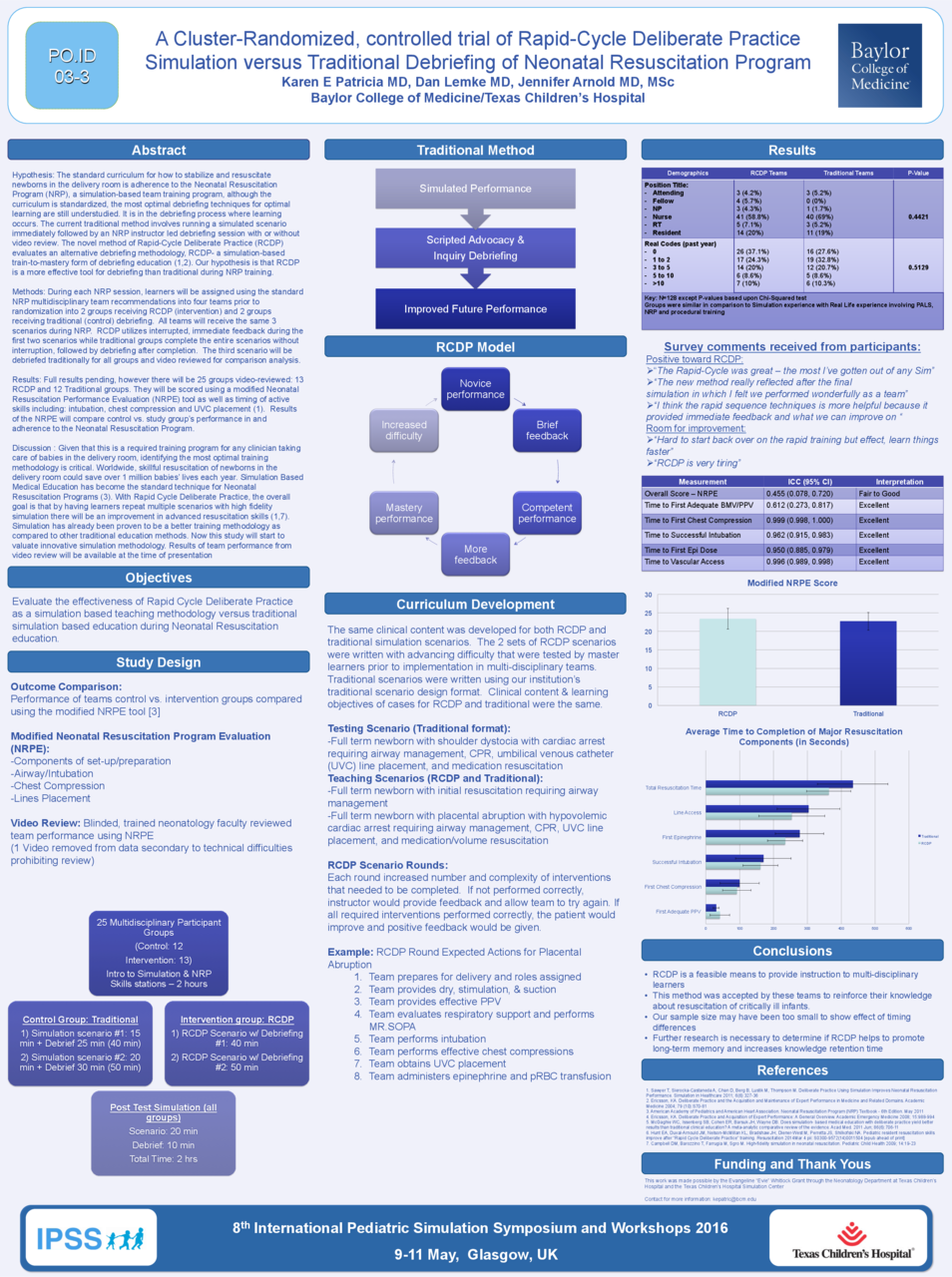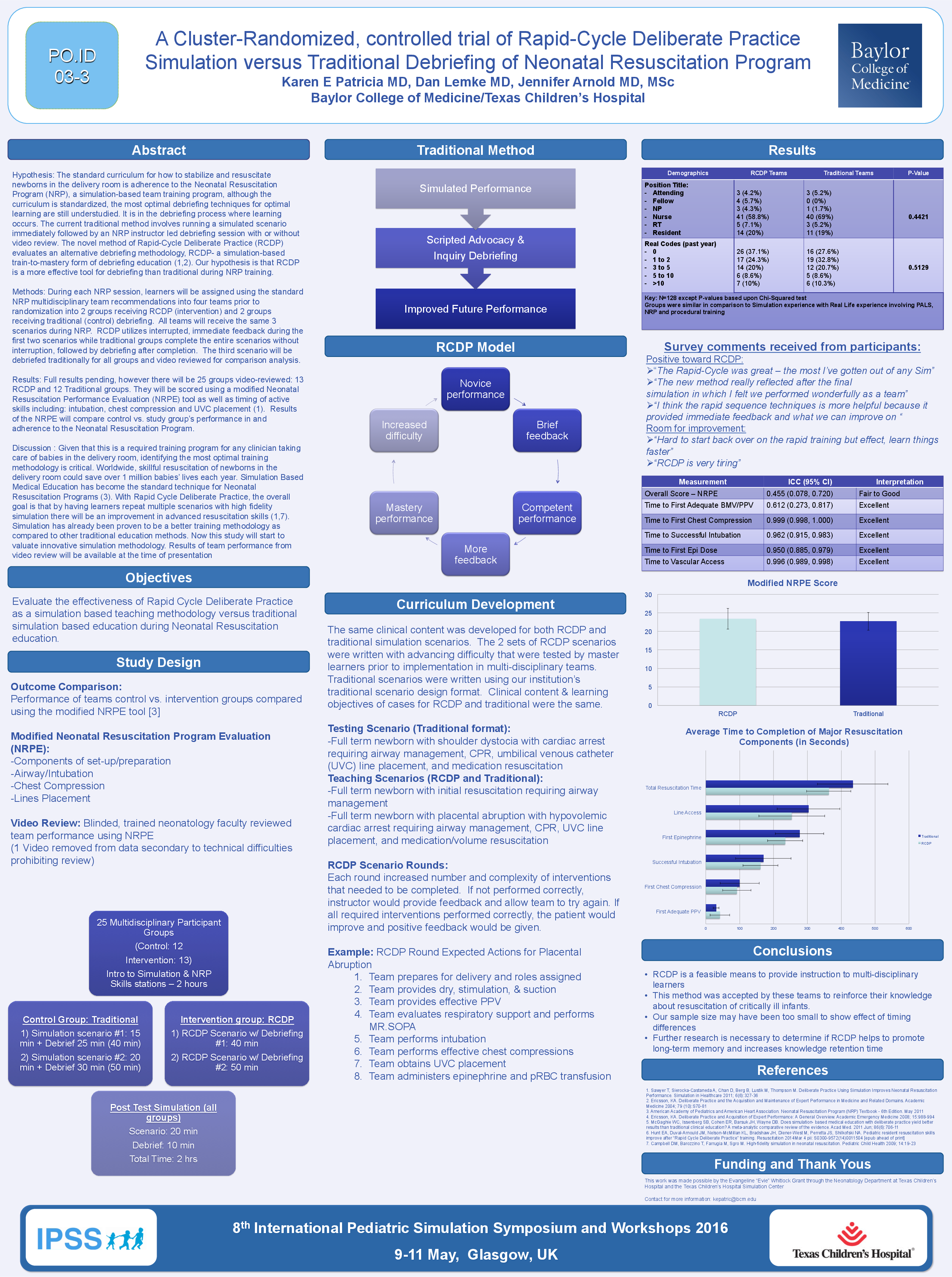Abstract
Hypothesis: The standard curriculum for how to stabilize and resuscitate newborns in the delivery room is adherence to the Neonatal Resuscitation Program (NRP), a simulation-based team training program, although the curriculum is standardized, the most optimal debriefing techniques for optimal learning are still understudied. It is in the debriefing process where learning occurs. The current traditional method involves running a simulated scenario immediately followed by an NRP instructor led debriefing session with or without video review. The novel method of Rapid-Cycle Deliberate Practice (RCDP) evaluates an alternative debriefing methodology, RCDP- a simulation-based train-to-mastery form of debriefing education (1,2). Our hypothesis is that RCDP is a more effective tool for debriefing than traditional during NRP training.
Methods: During each NRP session, learners will be assigned using the standard NRP multidisciplinary team recommendations into four teams prior to randomization into 2 groups receiving RCDP (intervention) and 2 groups receiving traditional (control) debriefing. All teams will receive the same 3 scenarios during NRP. RCDP utilizes interrupted, immediate feedback during the first two scenarios while traditional groups complete the entire scenarios without interruption, followed by debriefing after completion. The third scenario will be debriefed traditionally for all groups and video reviewed for comparison analysis.
Results: Full results pending, however there will be 25 groups video-reviewed: 13 RCDP and 12 Traditional groups. They will be scored using a modified Neonatal Resuscitation Performance Evaluation (NRPE) tool as well as timing of active skills including: intubation, chest compression and UVC placement (1). Results of the NRPE will compare control vs. study group’s performance in and adherence to the Neonatal Resuscitation Program.
Discussion : Given that this is a required training program for any clinician taking care of babies in the delivery room, identifying the most optimal training methodology is critical. Worldwide, skillful resuscitation of newborns in the delivery room could save over 1 million babies’ lives each year. Simulation Based Medical Education has become the standard technique for Neonatal Resuscitation Programs (3). With Rapid Cycle Deliberate Practice, the overall goal is that by having learners repeat multiple scenarios with high fidelity simulation there will be an improvement in advanced resuscitation skills (1,7). Simulation has already been proven to be a better training methodology as compared to other traditional education methods. Now this study will start to valuate innovative simulation methodology. Results of team performance from video review will be available at the time of presentation






